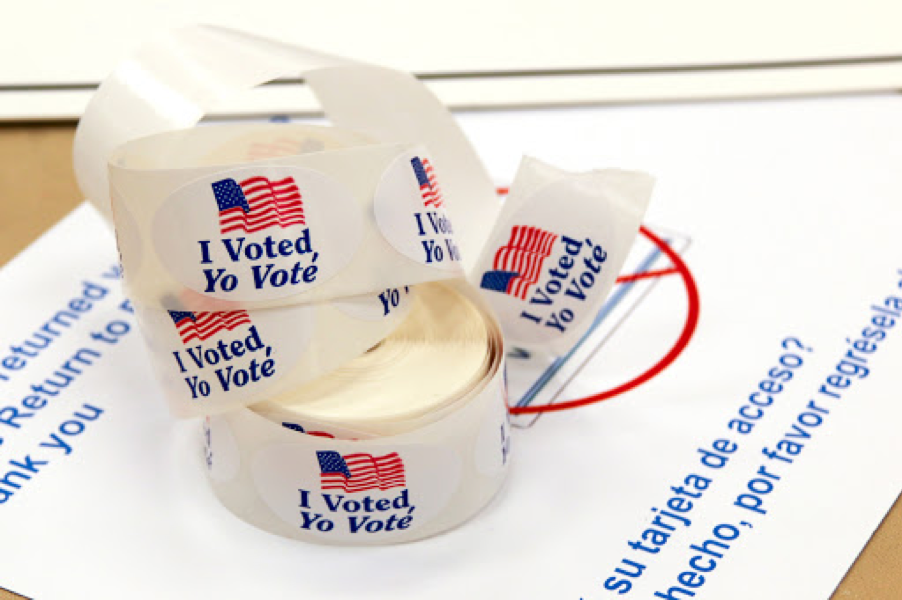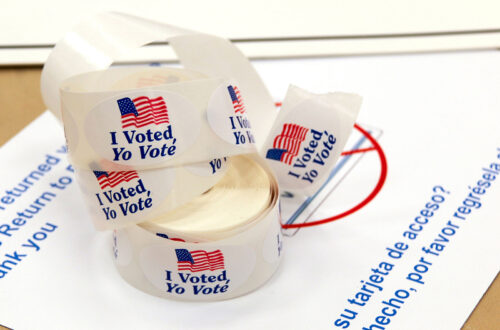Alachua County voters approved all six charter amendments on the 2020 ballot, which includes a narrowly passed amendment giving the county greater power over municipalities on environmental protections and land development regulations. Voters also chose to renew the one mill ad valorem tax for Alachua County Public Schools’ operating expenses.
Renewal of the Existing One Mill Ad Valorem Tax for School District Operating Expenses
Yes: 106,224 votes, 78.72%
No: 28,718 votes, 21.28%
As expected, voters approved a renewal of the existing one mill ad valorem tax for Alachua County Public Schools, which was first approved in 2008 and renewed in 2012 and 2016. The renewal confirms a tax of $1 per $1000 of taxable property to fund school nurses, music programs, art programs, drama programs, school library programs, school counseling programs, band and chorus programs, academic magnets, career technical programs, and updated classroom technology.
The school district ad valorem tax will be up for renewal again in 2024.
County Charter Amendment Establishing County Growth Management Area
Yes: 64,569 votes, 50.10%
No: 64,304 votes, 49.90%
In a vote that required two recounts, voters narrowly approved an amendment giving the county’s land development regulations ultimate authority over all municipal land development ordinances.
When votes were first counted, the amendment appeared to pass by just 175 votes, or 0.14%. That forced a machine-tabulated recount, which increased the lead slightly to 293 votes, or 0.22%. That then automatically triggered a manual recount, which was delayed from Nov. 12 to Nov. 13 due to Tropical Storm Eta. The manual recount eventually lowered the vote margin to just 265 votes.
Despite the finalization of the vote totals, the fight over the amendment continues in court. Last month, the City of Alachua filed a lawsuit over the proposed amendment arguing that the amendment summary on the ballot was unconstitutionally misleading. Attorneys for the city allege that the summary misled voters by emphasizing the establishment of a growth management area when in fact the amendment primarily concerns the balance of county versus municipal power in land development regulations.
On the other hand, attorneys for Alachua County argued in a court filing that the insertion of the word ‘county’ in the amendment title “[makes] quite clear to the voter that the charter amendment establishes a county growth management area” as opposed to a municipality’s growth management area.
Both the City of Alachua and Alachua County filed motions for summary judgment, which was heard in circuit court on Nov. 24 over Zoom.
Relationship Between County and Municipal Ordinances for Protection of Certain Natural Resources
Yes: 92,734 votes, 70.76%
No: 38,321 votes, 29.24%
Voters conclusively approved an amendment establishing that “the more protective of county or municipal ordinances” applies to protections of certain natural resources, including strategic ecosystems, listed species habitat, or significant geologic features or habitat.
The amendment will limit municipalities’ control over natural resource protections, with them now only being able to pass natural resource protection ordinances that are more strict, but not more lenient, than county ordinances.
Identification and Elimination of Racial and Gender Bias in Alachua County Policies
Yes: 99,901 votes, 73.96%
No: 35,171 votes, 26.04%
Voters convincingly approved an amendment requiring the Board of County Commissioners to conduct an annual examination of county programs and services to “eliminate all elements of racial and gender bias.”
The annual examination will encompass all existing county policies, departments, and programs, as well as any new county ordinances.
Although few disagreed with the amendment’s intentions, some expressed hesitation over the way in which the amendment attempts to combat discrimination. Joe Little, the vice chairman of the Alachua County Charter Review Commission, said that “it begins to try to look inside people’s minds and souls in a manner that’s probably inappropriate for the government to do.”
County Charter Amendment Establishing Alachua County Affordable Housing Trust Fund
Yes: 84,472 votes, 63.93%
No: 47,667 votes, 36.07%
Voters approved an amendment forming a new Alachua County Affordable Housing Trust Fund that would be “used to create and sustain affordable housing.”
The amendment’s passage creates no new taxes as the trust fund will be funded entirely from real estate development fees and donations. The county could, however, choose to raise taxes to fill the trust fund at a later date.
Mark Sexton, the communications and legislative affairs director for Alachua County, said the amendment “creates a framework for the county to raise funds if it ever wanted to start funding for affordable housing.”
County Charter Amendment Concerning Candidate Treasurer Report Requirements
Yes: 83,174 votes, 64.10%
No: 46,583 votes, 35.90%
Voters approved an amendment modernizing county campaign finance procedures by “[removing the] requirement that candidates file treasurer reports on paper.” Candidates will still be required to file treasurer reports electronically.
Suggested by Alachua County Supervisor of Elections Kim Barton, the amendment modernizes Alachua County’s campaign finance laws and makes it easier for candidates to run for public office, especially during a pandemic.
County Charter Cleanup Amendment Removing Unconstitutional Provisions
Yes: 91,934 votes, 69.87%
No: 39,639 votes, 30.13%
Voters approved a ‘charter cleanup’ amendment removing two unconstitutional provisions from the county charter. The first provision, deemed unconstitutional in 1993, aimed to prohibit protections based on sexual orientation or sexual preference. The second provision unconstitutionally attempted to require Alachua County Commission candidates to reside in Alachua County as soon as they begin campaigning instead of after they are elected.
The amendment’s passage will make no material changes to the functioning of the current county charter as the two amendments in question already had no effect due to their unconstitutional status.
Featured image: “I voted” stickers. Unmodified image by GPA Photo Archive used under a Creative Commons license. (https://bit.ly/3bCPGbO)
Check out other recent articles from the Florida Political Review here.





